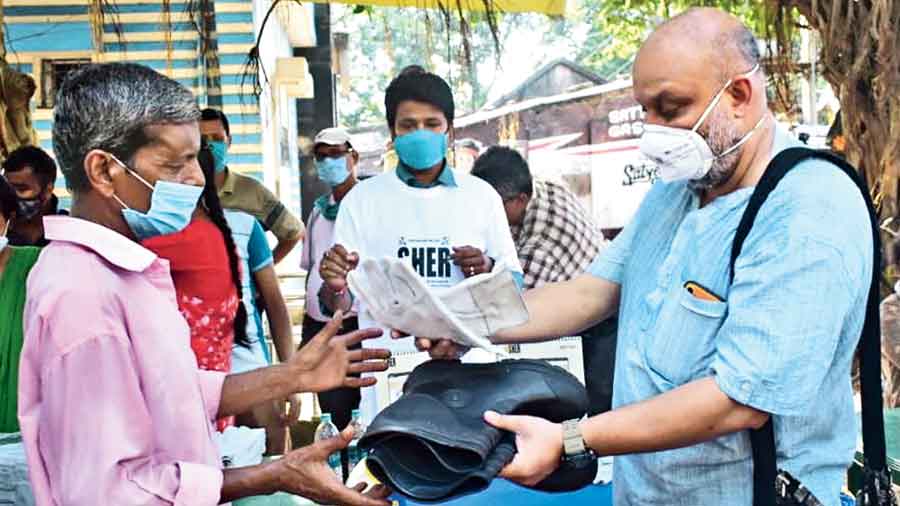One hundred farmers in Hooghly district on Friday got a pair of gumboots and gloves, each, as a shield against snakebites, from an organisation that works to reduce human-wildlife conflict.
The monsoon is the time when most cases of snakebites are reported across Bengal, said forest officials. With the advent of the rainy season, the farmlands need to be cleared of weeds before the sowing of paddy seeds.
The earthen embankments surrounding the fields need to be raised to prevent rainwater from flooding farmlands. The raised mounds make the fields a thriving habitat for rodents, thereby attracting scores of snakes which prey on them.
The farmers tilling the land often get bitten by snakes. Many of them work barefoot and are more vulnerable to snakebites.
“Most of the time it is difficult to spot snakes. Many farmers happen to step on a snake before getting bitten. People get killed. The snakes that are spotted are also beaten to death by people,” said Kalyanmoy Das, of the Society for Heritage & Ecological Research (SHER), the NGO that distributed the gumboots and gloves.
The boots and gloves were distributed on Friday — July 16 is observed as the World Snake Day — to 100 farmers in Hooghly’s Haripal block, around 50km from Calcutta.
The distribution of boots and gloves is part of a pilot project of the NGO. “The boots are made of rubber and the gloves are made of thick leather. The sturdy gear will protect the farmers from snakebites. If successful, the project will be scaled up,” said Das.
Around 46,000 people die after being bitten by a snake in India every year, according to the American Society of Tropical Medicine and Hygiene.
“Most deaths because of human-wildlife conflicts in India can be attributed to snakebites. Rural Bengal is no exception. The conflict is detrimental for both humans and snakes,” said Joydip Kundu of SHER.
“Snakes play an important role in the general as well as agricultural ecosystem because they are natural pest-controllers,” said a forest official.
“The drive is commendable. If successful, it can be replicated across the state. We are also trying to increase awareness to reduce the conflict between snakes and humans,” said V.K. Yadav, the chief wildlife warden of Bengal.











